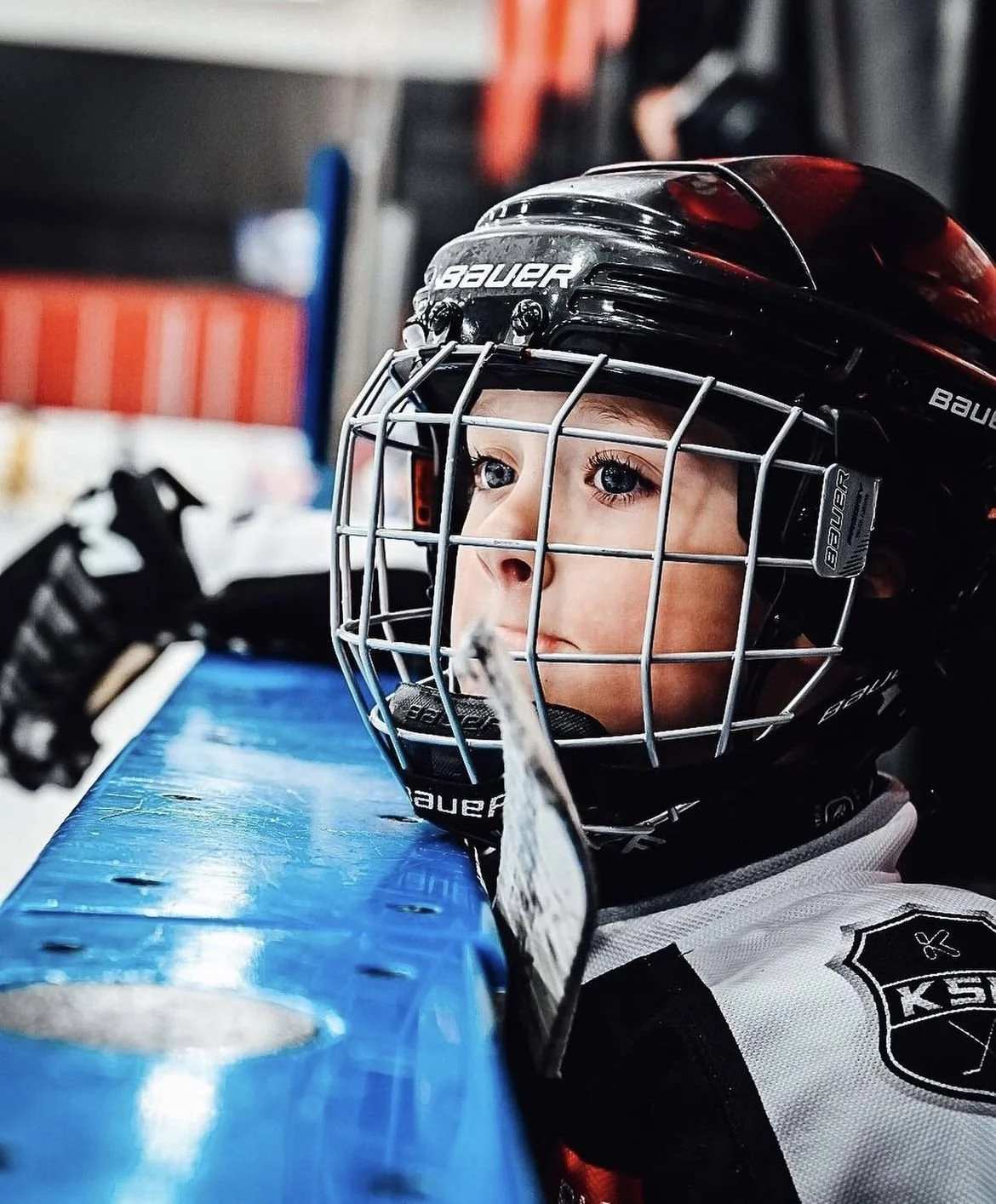The Crucial Role of Mental Health in the Journey of Young Athletes
In the realm of sports, the focus has often been on physical strength, skill development, and natural talent. While these aspects are undeniably crucial, the significance of mental health in the lives of young athletes cannot be overlooked. The intense pressure, competition, and rigorous training routines can take a toll on their well-being. One of the many organizations pioneering a change in how we develop young athletes is 1616, a 16-week hockey program with a focus on athletic performance as well as the development of connections, confidence and character. We talked to Andrew & Brandy Ladd, founders of 1616, about the importance of mental health for young athletes and why prioritizing their emotional and psychological well-being is key to their success and long-term happiness.
1616’s mission is to change the trajectory of kids' lives by proactively impacting their mental wellbeing through the power of sport. 1616 is a 16-week mental, physical and social wellbeing experience for youth hockey players that blends real-life stories from the best hockey players in the world with proven research base curriculum and tools. They teach kids about the importance of and how to build connection, confidence and character through the powerful stories of top athletes and challenging them to live out those concepts in their daily lives. To truly change the trajectory of kid’s lives they know they need to create environments where they can thrive, so that is why 1616 has also created resources for parents and coaches to better support their young athletes.
The Emotional Rollercoaster of Athletics
There’s no denying that competitive sports can be emotionally demanding for young athletes. The pressure to perform at a high level, the fear of failure, and the constant scrutiny from coaches, peers, and parents can lead to stress, anxiety, and even depression. “There were very little resources out there that focus on how to be intentional with the mental wellbeing of young athletes. Most of the focus in on kid’s physical competence and on ice success.” Brandy said.
Building Resilience
Resilience, the ability to bounce back from setbacks, is a valuable skill in sports and life. Mental health plays a significant role in developing resilience among young athletes. By equipping them with coping mechanisms, emotional regulation techniques, and a strong support system, we empower them to navigate obstacles and face adversity with confidence and determination. One of the most important support systems for young athletes are their coaches. “A good coach understands that every individual athlete in front of them is experiencing different challenges and they take the time to work with them individually to address different areas where they can grow mentally and physically.” Brandy mentioned.
Balancing Athletics and Life
Young athletes often face challenges in finding a balance between their sporting commitments and other aspects of their lives, such as academics, relationships, and personal interests. Neglecting mental health in the pursuit of athletic excellence can lead to burnout, strained relationships, and feelings of emptiness. Athletes often feel as though they need to “juggle it all”. “It’s normal to feel overwhelmed by wanting to be the best you can possibly be at your age. My advice is that your goal isn’t to be the best 10 year old, your goal is to be the best 29-year-old. So, you have 15+ years to screw up, make mistakes, try new things, and learn from it all. The courage to try new things and fail will allow you to grow quickly and reach your true potential.” Brandy said. Encouraging a well-rounded approach and promoting self-care helps athletes maintain a healthy perspective and enjoy a fulfilling life beyond their sport.
Overcoming Stigma
In many athletic cultures, seeking help for mental health issues is still stigmatized. Young athletes may fear judgment or worry about the impact on their careers. It is essential to normalize conversations around mental health, educate athletes, coaches, and parents about the importance of seeking support, and provide safe spaces for discussions. If a coach sees that a player is struggling with their mental health, “create a relationship with that player where they feel comfortable approaching you and asking for help. Show them that you care about them as a person not just a player.” Brandy noted. By creating an environment that supports mental well-being, we can break down barriers and encourage athletes to seek help when needed.
Long-Term Well-being
While the athletic journey may be intense and time-limited, mental health extends far beyond the sports arena. The skills young athletes learn through prioritizing their mental well-being will benefit them throughout their lives. One of Andrew’s coaches told him:
“Think of your brain as a muscle. You need to go to the gym and work that muscle just as much as you go to the gym to work the muscles of your body.”
By fostering self-awareness, emotional intelligence, and effective stress management techniques, we equip them to face challenges, build meaningful relationships, and lead fulfilling lives beyond their athletic careers.
The importance of mental health in the lives of young athletes cannot be overstated. By nurturing their emotional well-being alongside their physical development, we provide them with the tools necessary to thrive in sports and beyond. The emphasis on mental health not only enhances their athletic performance but also contributes to their overall happiness, resilience, and success in all areas of life. Let us work together to create a supportive environment that champions the well-being of young athletes, helping them realize their full potential both on and off the field.
For more information about 1616 and the Ladd Foundation, visit 1616.org





